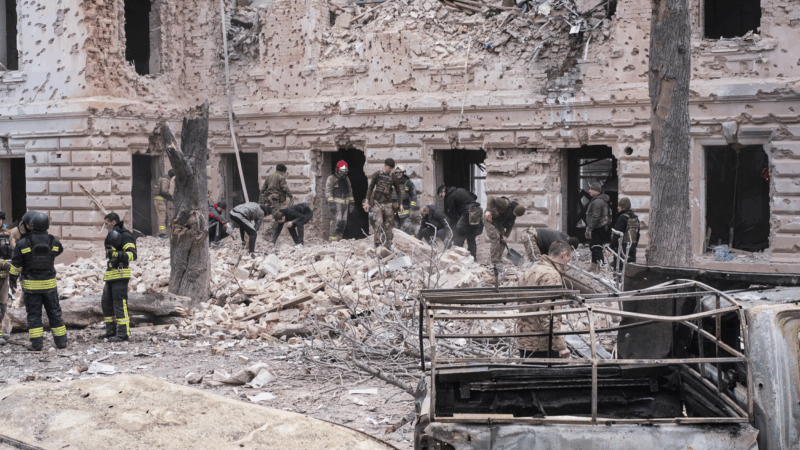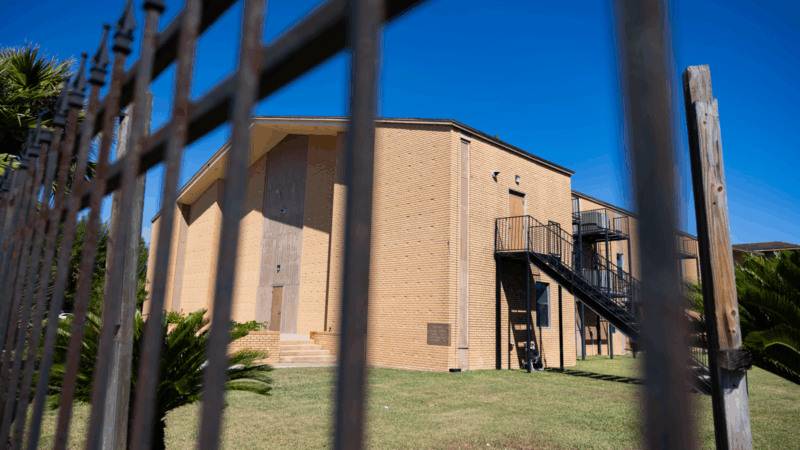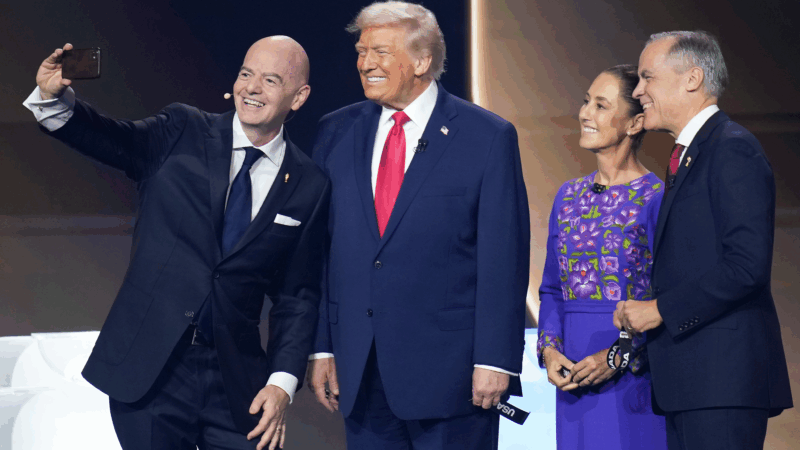Officials from U.S., Europe meet in London for Ukraine peace talks
Senior officials from several countries, including the United States, are meeting in London today to continue discussions over a ceasefire agreement between Russia and Ukraine.
President Trump’s envoy for Ukraine, retired General Keith Kellogg will attend this latest round of talks, but U.S. Secretary of State Marco Rubio will not.
Less than a week after Rubio threatened that the U.S. would “move on” from peace negotiations between Russia and Ukraine if the Trump administration did not see progress “within days,” signs are that the U.S. is increasingly willing to withdraw from a peace process that has grown more complex in recent months.
What to know
Officials from the U.S., U.K., France, Germany and Ukraine will meet today in London, and were supposed to be hosted by Britain’s foreign secretary David Lammy.
He spoke to Rubio last night for what he called a “productive” conversation, but the State Department has suggested there is little chance of a breakthrough in London today, and senior French and German ministers will no longer be traveling.
The British Foreign Office has not issued a statement about the changed circumstances of the meeting, and did not respond to calls or emails seeking comment, but this represents an apparent downgrade in the significance of the talks.
The White House has separately announced that Trump’s special envoy, Steve Witkoff, will this week return to Moscow for what would be his fourth face-to-face meeting with Russian President Vladimir Putin, in a sign that the U.S. will also continue with efforts to negotiate details of a ceasefire directly with Russia.
What to expect
Senior officials will continue to discuss areas of common ground. Kellogg’s proposals last year that suggested how the United States could increase pressure on Moscow — by further ratcheting economic sanctions, or increasing military aid to Kyiv — seem to have been jettisoned for now.
The challenge for the ongoing dialogue between American and European leaders — as it has been since the White House argument between Trump and Ukrainian president Volodymyr Zelenskyy — is that the U.S. expects Ukraine to make major concessions to Russia.
But nations like France, Germany and the U.K. have continued to insist that support for Ukraine – military, political and economic – is necessary to ensure that Putin is forced to negotiate on more equal terms.
What’s at stake
Members of the U.S. administration have floated proposals in recent days that suggest Ukraine should be prepared to recognize Russia as the holder of territory it annexed back in 2014, including the Crimean peninsula, or has seized in the larger invasion that began in 2022.
Such proposals would essentially freeze the frontlines, with Russia retaining de-facto control over large parts of four Ukrainian provinces.
But Zelenskyy has repeatedly ruled out the possibility that Ukraine would, for instance, recognize Crimea as being Russian territory, and he said Tuesday that none of these potential ideas that the U.S. administration has floated in the media have been formally shared with him.
It therefore remains unclear, experts say, whether the U.S. is attempting to stand between these two warring parties in the role of a traditional mediator, or is instead seeking to create a peace framework almost unilaterally, with Russian buy-in, that it will then try to force Ukraine to accept.
From the European perspective, the very least that leaders like French President Emmanuel Macron and British Prime Minister Keir Starmer have sought from Trump are guarantees for Ukraine’s long-term security, as well as help with funding any eventual reconstruction of the devastated nation.
Yet Trump has continued to threaten an end to all U.S. support for Ukraine and its military, warning recently that he would “take a pass” on the brokering of a peace agreement if the Ukrainians and Russians “make it difficult” to settle their differences.
Pregnant migrant girls are being sent to a Texas shelter flagged as medically risky
Government officials and advocates for the children worry the goal is to concentrate them in Texas, where abortion is banned.
The 2026 World Cup faces big challenges with only 100 days to go
Will Iran compete? Will violence in Mexico flare up? And what about funding for host cities in the U.S.? With only 100 days left before it beings, the 2026 World Cup in North America is facing a lot of uncertainty.
A glimpse of Iran, through the eyes of its artists and journalists
Understanding one of the world's oldest civilizations can't be achieved through a single film or book. But recent works of literature, journalism, music and film by Iranians are a powerful starting point.
Mitski comes undone
She may be indie rock's queen of precisely rendered emotion, but on Mitski's latest album, Nothing's About to Happen to Me, warped perspectives, questionable motives and possible hauntings abound.
This quiet epic is the top-grossing Japanese live action film of all time
The Oscar-nominated Kokuho tells a compelling story about friendship, the weight of history and the torturous road to becoming a star in Japan's Kabuki theater.
The Live Nation trial could reshape the music industry. Here’s what you need to know
On Tuesday opening statements will begin for the federal antitrust trial against Live Nation, one of the largest entertainment companies in the world.








